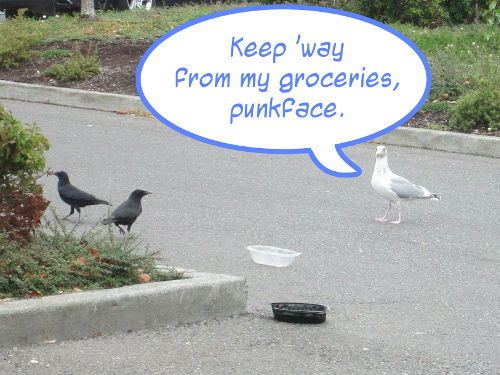Since I’ve been doing this fiction-writing thing for mo’ than 5 years1, I’d been thinking o’ writing literary reviews, but actually haven’t found that many books I’ve read that I truly thought much ’bout. I try to read round 50 books a year, but I usually think o’ it as grinding I have to do to get better @ writing, rather than anything I feel passionately ’bout.
The exception is, ‘course, a book I felt very annoyed by, & therefore will be the 1st for me to rant ’bout.
Case in point: our protagonist & narrator. He’s a goody-goody shy nerd who buddies up with the raddest kids e’er, who all screw round doing deep shit, yo. 1 memorable scene was when they’re in some car, & 1 o’ the characters spreads her arms & says that she feels “invincible.” Said character is the sister o’ his other friend, whom he develops a crush on, not ’cause o’ her personality, but ’cause o’ her appearance—that’s the only reason he e’er gave for his infatuation. But this is a particularly creepy & hypocritical puritan form o’ infatuation: 1 wherein he praises her for not being like those other skanky hoes, ¡but has no problem with later feeling up her tits! Near after he 1st meets these 2, he tells her ’bout this dream he has wherein he imagines her naked, ’cause it’s cute when men tell women such creepy-ass shit; ‘stead o’ running, as any rational person would, she laughs & tells him no as one would talk to a 4-year-ol’.
Our protagonist also has a teacher who thinks he’s special & calls him the smartest student o’ his e’er2. This is despite our protagonist’s writing being worse than the writing I did when I was his age.3 I don’t think this is ’cause Chbosky is developmentally challenged, but ’cause he’s trying to be, since he’s an arrogant adult with—probably—average literary skills, & tries to stimulate high school diction by dumbing his writing down, based on the assumption that high schoolers are much dumber than they truly are. Also, you know, the protagonist hardly e’er does any writing, other than these journal entries, & some simplistic book reports that’d get him an F in my high school language arts classes (they don’t just let you ramble ’bout your opinions, you know; they usually have rather strict rules in regards to organization, using citations, & analyzing aspects such as theme & authorial intent & how the style, structure, & plot o’ the work fits such). It’s the same reactionary moral that many airheaded American works give: amazing skills aren’t honed from years o’ consistent practice, aided by having favorable conditions for said practice, but by just being born special (¡’cause hooray for biological determination!). I want to emphasize that word ’cause Chbosky clearly wants to emphasize how special our protagonist is, as a shallow way o’ emotionally exploiting the kind o’ narcissistic nerds who are clearly this book’s target audience to think they’re special, too.
See, 1 o’ this book’s main moral is that you just gotta go out there & do it, man, & stand up for yourself & not let other people step all o’er you. This is both typical & ironic coming from an American: Americans don’t need to be taught to think ’bout themselves & how great they are; they need to be taught to think ’bout someone other than themselves for once. Such morals also might be mo’ valuable if they weren’t regurgitated from the mounds o’ self-help books already infesting bookstores & libraries.
These morals are so bad, they’re contradicted within the very same book. See, this moral ’bout standing up for yourself comes from that female friend o’ his I mentioned earlier, after she snaps @ him for not trying to make the moves on her. In a rare case o’ sanity from our protagonist, he rightfully points out that she told him to back off, & he rationally complied. Now, earlier in this book the author made it quite clear that you’re s’posed to think that when a woman tells a man, “no,” it means “no.” There’s a point ’bout a rapist who didn’t take this advice & was demonized for it, & ‘nother point when the protagonist’s father, who is clearly meant to be a voice o’ reason, says this outright (Chbosky has ne’er heard o’ subtlety, by the way). But here, the female friend, who is also shown as a voice o’ reason here, says the opposite: when she said “no,” that was apparently s’posed to mean “yes,” a’least when you’re a cuddly nice-guy nerd, & not 1 o’ those jerk jocks, ¿amirite? What a great moral to give to the nice-guy nerds that are clearly your target audience, Chbosky.
Part o’ her big speech also involves complaining @ our protagonist for not going out there & doing stuff, getting out o’ his shell, & such, but this makes no sense. Our protagonist spends the vast majority o’ his time doing the same shit they’re doing. I mean, I would agree that screwing round & doing drugs—or worse, acting like trite, obnoxious shits @ screenings o’ Rocky Horror Picture Show—probably isn’t a wise use o’ your time; perhaps he could, if he truly wanted to be a writer, maybe practice writing. Perhaps he could read books that weren’t just assigned to him, or read some grammar books, maybe a dictionary or something. Maybe practice mo’ writing than this li’l stuff he does in the book…
Anyway, I don’t think that’s what Chbosky’s trying to say: I think he’s trying to give ‘nother typical American moral: “introverts, who are totally awesome, by the way, need to stop being their filthy selves & socialize.” Clearly the screwing round & drug use is meant to be a positive example o’ what “living” is, since… I don’t know, that just fits in with the mindless American hive mind’s traditions, & it’s the only thing that almost makes sense in this context. The problem with that, though, is that there’s no indication that our protagonist actually is introverted @ all. Quite the opposite: in 1 scene, when his friends have to do something ‘way from him, he goes crazy from friend withdrawal & bugs his sister & her boyfriend. That’s the opposite o’ an introvert. See, the thing ’bout truly asocial people is, they don’t like being round people. They truly find it enjoyable to be ‘lone, with private time. That’s probably ’cause they have this thing called “intelligence” & “creativity” & thus don’t need other people to be their personal jesters. Inane extraverts like Chbosky don’t get this ’cause they don’t understand introverts, are too narcissistic to understand that some people might be different from them, & ’cause they don’t actually respect introverts, anyway, they just want to exploit them ’cause they’re too asocial to speak for themselves publicly, & therefore a weak class, & ’cause they’re hip due to that weakness.
Actually, that I think could be the core problem with this book: it tries to build itself up as this very caring book, but it’s shallow, & it’s clear that Chbosky cares mo’ ’bout making himself look profound & caring, without actually putting the effort into doing so. This isn’t true writing, from an author’s heart & unique creativity; it’s a cynical marketing ploy—the kind that probably started as 1 o’ those inane elevator speeches before being written.
Also, having a secret backstory wherein the protagonist was sexually molested by his aunt is both the most cliché desperate grab for critic praise & forced into the plot for no relevance. It could’ve been cut out, & the story would’ve been just fine. So could all the stupid bullshit he did with his dumbass friends, like that trite bullshit with the Rocky Horror Picture Show shit.
O, god, or what ’bout that fucking hacky conversation ’bout Kurt Cobain. Unfortunately, I can’t remember the exact wording,—actually, fuck that, I’m immensely satisfied with that outcome—but it went something like this:
[Some jerkoff] said ’twas grown ups, man; [other jerkoff] said ’twas corporate media.
[The absolute biggest waste o’ flesh on the planet] said he was hungry.
Fucking hilarious.
Man, I just realized how utterly unlikeable all the characters were. What a triumph.
The Reviews
‘Cause I’m mean-spirited, I’m also going to bash some o’ the idiots online who actually thought this tripe was good.
Our 1st example is the 1 that inspired this in the 1st place, someone with the misspelled name “Wandergurl,” which I think is a character from My Immortal, on stupidly-named Book Thingo, which “earns commissions through affiliate links and Skimlinks. So if you buy a book using a link from [their] site,” you got god damn played, sucker.
Anyway, you can already tell this review if inane by its headline: “This book needs a hug.”
Then in the 1st paragraph we can see that this reviewer didn’t actually read the book, or wasn’t paying attention: she claims that the protagonist’s writing “is filled with raw emotion,” when I remember it being Chbosky’s clumsy & offensive attempt to pretend to know how an autistic writes, with the classic technique o’ having the character describe sensitive events like a 4-year-ol’ medical scientist.
O, fuck, wait, ¿what? Look @ what comes right after—right after—that quote I just put in: “in what I imagine to be Charlie’s matter-of-fact, possibly even slightly monotone—but always honest—passive voice.” Yes, that’s right: monotone, passive raw emotion. This book needs a hug, & this reviewer needs a fucking dictionary.
At first, Charlie doesn’t have any friends.
This lasts for less than 20 pages. Boo fucking hoo.
He is a little weird—even weirder than the cool kind of weird[.]
Um, I’d like to see some mathematical formula so we can deductively prove that this weirdness level has gone beyond the threshold o’ “cool” weird. Noah Smith would not be happy by such sloppy economics.
He makes friends with two seniors, Patrick and Sam, and begins to experience life, sometimes without really trying.
By the way, I can feel the raw emotions in these sentences written by a person who just figured out how to write sentences yesterday.
“And begins to experience life.” Fun fact: Charlie was born just before he met these 2 seniors. That’s why he had such trouble making friends; nothing’s mo’ uncooly weird than a newborn baby in high school.
I first heard of this book when it was released and kept meaning to read it, not realising, ten years later, that I would be determined to read it because they’ve made it into a movie!
Either this reviewer didn’t realize they would do something 10 years later based on events she couldn’t predict, or she wasn’t realizing that she was doing something 10 years later as she was doing it; but either way, ’twas quite amazing ‘nough to merit that exclamation point.
I thought it would be a typical coming of age book…
Surprisingly, ’twas worse.
[A]nd I expected to be caught up and be able to relate to the story, because who hasn’t felt like a wallflower sometimes—on the outside looking in? It was a lot more than I expected.
I can tell by the way you’re so excited that you couldn’t e’en stop to break your review into coherent sentences.
For one thing, it’s actually quite a serious book.
The fact that you e’en have to say that proves elsewise. Nobody says something like, “The truth is that Toni Morrison’s Beloved is quite a serious book,” ’cause anyone who needs to be told that’s too stupid to know how to read.
There are serious undertones beyond just the typical teenage drama of boys, clothes, girls, football and prom.
Yeah, it talks ’bout important things, like Rocky Horror Picture Show & what the characters’ favorite books & movies are. (¡Charlie’s is This Side of Paradise, by F. Scott Fitzgerald, which is super serious, guys!)
The book touches themes of abuse…
(Laughs.) Worst diction e’er.
I question whether everything bad really had to have happened to everyone in this book, but at the same time, it’s not unrealistic[.]
Yeah, it’s not unrealistic for real life to be like a badly-written book.
[S]hit does happen.
Best summary o’ this book.
The reviewer then babbles on ’bout the 90s & other bullshit.
It took me a while to read this book[.]
This book is short & extremely simplistic. It took me a day to read—& I’m a damn slow reader. Now I’m seriously wondering if I’m an e’en bigger asshole than I thought & whether this might be a middle schooler writing this.
Charlie can get a bit depressive, but he pulls through and you find yourself barracking for him, especially at the end when he figures things out.
“I didn’t actually read this book: but I’m sure this sad character has [insert conflicts], but [does something to not be killed by them] & then [like, figures something out, I guess].
I spent most of this book just wanting to give him a hug.
Stop touching the imaginary character’s abuse, please.
Author Stephen Chbosky fills the book with pithy observations, the most famous (and my favorite) being, ‘We accept the love we think we deserve.’
I’m glad I forgot that 1, since it’s as inane as the others. It’s borderline tautological, & @ the very least meaningless, since one doesn’t have much control o’er either (a’least I like to think that I think I deserve things based on what seems to be objective reality, & don’t magically consciously trick my own mind into thinking I deserve something simply ’cause I want to—rendering the whole idea o’ “deserve” nugatory). Man, think how easy psychological issues would be to solve if people didn’t have them. & while we’re @ it, ¿why don’t idiots like Chbosky just stop being dumb? ¿Can that be my pithy quote? “Dumb people are just people who haven’t learned that they’re dumb yet.” That definitely belongs on a mug.
It spits you out, a little tired and worse for wear, but somehow I feel like I’ve been made better by it.
Well, I’m glad that you’ve been made so much better off by my being spit out & made all tired by this shit. Way to rub it in.
Its raw honesty makes it truly one of the best [YOU CAN BUY PHANTASIA SCHLOCK BY ANNIE MELANINE & GET IT TODAY WITH A FREE TRIAL O’ AMAZON PRIME] books I’ve ever read.
Thank you, Adbot3031 for your wonderful review.
Next review:
The fact that you think his literary essays showed his ability @ discerning meaning is ample evidence for why you’re a “professional cat pamperer” & not a literary major, “Kate” Nosurname McGee.
The Perks of Being a Wallflower reminded me of coming-of-age classics like The Catcher in the Rye…
…in that they’re both shitty & both have protagonists who were utter wastes o’ oxygen.
[…] and, to a lesser extent, The Bell Jar[…]
A li’l too much actual thought put into that 1. Plus, it’s likely that protagonist isn’t a waste o’ oxygen anymo’—ha, ha… ugh… I’m sorry…
Something I wasn’t expecting from this book was the focus on women and how girls develop as a result of society. This theme is present throughout the story, and particularly demonstrates how girls – young, old, popular, activist – are taught to define their value based on the opinion of men and whether or not they’re seen as attractive.
Kinda like how Sam is pretty much just the generically cute girl that our protagonist lusts after, with hardly any development (¡but a’least he gets some undershirt action, ¿amiri—? Wait…). Also Mary Elizabeth is just that yappy bitch who needs to learn to shut her trap.
Yeah, Chbosky’s an amazing feminist.
You can find a bunch o’ 1 paragraph clumps o’ incoherent reviewing @ AMAZON.COM, WHERE YOU CAN ALSO BUY MUCH BETTER BOOKS, LIKE 13 REASONS WHY, WHICH IS ‘BOUT A CHARACTER WITH AN ACTUAL PERSONALITY & WASN’T A WASTE O’ OXYGEN, E’EN BEFORE BEING DEAD.
The Guardian shows their power to bullshit:
The writing here is so rhythmic that it’s almost hypnotic.
Chbosky’s approach is always unflinching[.]
¿What? ¿You’re not going to make some trite metaphor ’bout this book being “savored” like a fucking stew? ¿You’re not going to talk ’bout how this book “reaches inside of you and pulls everything to the surface,” like 1 o’ those paragraphs WHICH YOU CAN FIND @ AMAZON.COM? Which is just proof that if any o’ those people e’er learn what a paragraph break is, they’ll be qualified to write reviews for The Guardian.
I also love how this idiot complains ’bout this book being sexist ’cause it had a male gay character, but not all the immensely sexist shit I mentioned earlier. This fucker didn’t e’en read this book.
Holy shit, fuck everything I wrote here: This Tumblr post summarized everything I had to say ’bout this book in just a couple, succinct paragraphs. It’s like the Euler’s Identity o’ Perks reviews.
Last Words ’bout the Film
1. The guy who plays the protagonist looks like a smug douche.
2. That Chbosky is a film director isn’t surprising, since The Perks of Being a Wallflower has that shallow stench o’ Hollywood.
Footnotes:
[1] I’m just as late in publishing those as I am with these editorials, & I just as much neglect to publish them. As an example, I started writing Boskeopolis Stories, which I started publishing July 2013, December 2011.
[2] Said teacher also gives inspirational inanity, in the form o’ a quote from a book by Ayn Rand, the go-to philosopher for profound-sounding phrases without substance. Said quote is some bullshit ’bout “I’ll die for you, but not live my life for you.”
[3] I heard some reviewers complain ’bout the protagonist using some big words, but I felt the opposite ’bout his diction. This is not an average high schooler, but purportedly a literary genius. ¿Have they ne’er met pretentious high school nerds? We’d use thesauruses just so we could use big words like “abnegate” & “cognomen.” I think it’s mo’ that the writing isn’t sufficiently far from their current writing level, & arrogant adults forget how li’l the average adult’s writing abilities develop from high school (I can hardly tell the difference ‘tween web writing made by high schoolers & the average “adult”).




